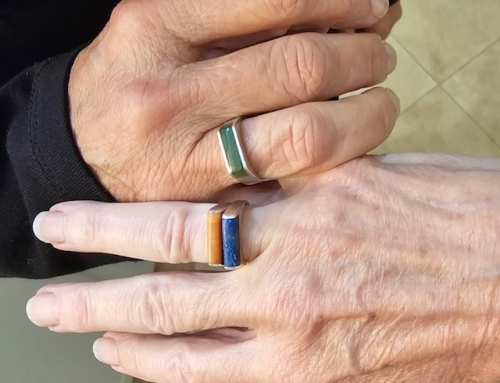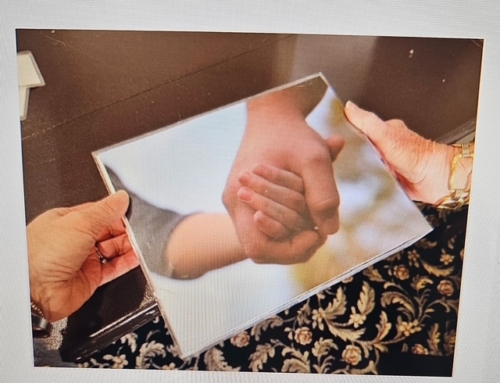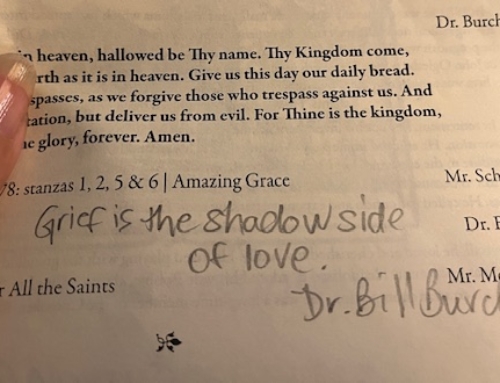
Good morning…
“This meditation from yesterday really speaks to me, and I think it will speak to you too,” she texted me yesterday after a really hard ten days. “Happy Saturday as I enjoy the lake and mountains before the boat traffic starts.”
******
Father Richard’s Franciscan tradition prioritizes putting love into concrete action while drawing on Divine Love as our Source:
Love won’t be real or tested unless we somehow live close to the disadvantaged, who frankly teach us that we know very little about love. To be honest, my male Franciscan seminary training didn’t teach me how to love. It taught me how to obey and conform, but not how to love. I’m still trying every day to learn how to love. As we endeavor to put love into action, we realize that on our own, we are unable to obey Jesus’ command, “Love one another as I have loved you.” To love as Jesus loves, we must be connected to the Source of Love.
Over decades of serving New York City’s poorest individuals, Dorothy Day (1897–1980) never lost sight of the gospel’s challenging invitation to love:
Whenever I groan within myself and think how hard it is to keep writing about love in these times of tension and strife which may at any moment become for us all a time of terror, I think to myself “What else is the world interested in?” What else do we all want, each one of us, except to love and be loved, in our families, in our work, in all our relationships. God is Love. Love casts out fear. Even the most ardent revolutionist, seeking to change the world, to overturn the tables of the money changers, is trying to make a world where it is easier for people to love, to stand in that relationship to each other. We want with all our hearts to love, to be loved. . . . It is when we love the most intensely and most humanly that we can recognize how tepid is our love for others. The keenness and intensity of love brings with it suffering, of course, but joy too because it is a foretaste of heaven. . . .
When you love people, you see all the good in them, all the Christ in them. God sees Christ, His Son, in us and loves us. And so we should see Christ in others, and nothing else, and love them. There can never be enough of it. There can never be enough thinking about it. St. John of the Cross said that where there was no love, put love and you would take out love. [1] The principle certainly works. [2] . . .
Love and ever more love is the only solution to every problem that comes up. If we love each other enough, we will bear with each other’s faults and burdens. If we love enough, we are going to light that fire in the hearts of others. And it is love that will burn out the sins and hatreds that sadden us. It is love that will make us want to do great things for each other. No sacrifice and no suffering will then seem too much. [3]
___
[1] John of the Cross to María de la Encarnación, July 6, 1591, in The Collected Works of John of the Cross, trans, Kieran Kavanaugh and Otilio Rodriguez (Washington, DC: ICS Publications, 1979), 703.
[2] Dorothy Day, On Pilgrimage (New York: Catholic Worker Books, 1948), 52.
[3] Dorothy Day, House of Hospitality (Huntington, IN: Our Sunday Visitor, 2015), 267.
Adapted from Richard Rohr, Essential Teachings on Love, selected by Joelle Chase and Judy Traeger (Maryknoll, NY: Orbis Books, 2018), 182–183.
******
Before leaving earth to sit beside our Father in heaven, Jesus offers us an empowering invitation. “I’ve loved you the way my Father has loved me. Make yourselves at home in my love. If you keep my commands, you’ll remain intimately at home in my love. That’s what I’ve done—kept my Father’s commands and made myself at home in his love (John 15:9-10, MSG).
Remaining intimately at home in the love of the Father/Son/Spirit, we overflow as a life-giving part of God’s healing solution.
…Sue…





